When the Piper Alpha disaster killed 167 oil workers on July 6 1988 off the coast of Aberdeen, a gas leak had caused the oil production platform to explode in a massive ball of flames.
Only 61 managed to escape the inferno, which engulfed the rig and sent much of the structure crashing into the sea.
In November 1990 Lord Cullen‘s report into the disaster severely criticised safety procedures on the rig owned by Occidental Oil.
35th anniversary of Piper Alpha disaster
However, as the 35th anniversary of the world’s worst offshore oil disaster approaches, a former North Sea oil worker turned climate activist is exploring the parallels between the current global climate emergency and the North Sea tragedy.
Aberdeenshire-based writer and artist John Bolland has created a powerful and thought-provoking multimedia theatre production called Pibroch.
It combines poetry with live music and visual imagery to explore the personal and social experiences of Piper Alpha survivors.
Posing the question ‘what would you do if you found yourself on a burning platform?’, he considers how many of the 167 men who perished on Piper Alpha died after following instructions and awaiting rescue in the mess hall.
Others disobeyed the prevailing wisdom and took their lives and their survival into their own hands.
What lessons should this teach us about the need for immediate and radical responses to the climate emergency and a warming world – our very own ‘burning platform’?
Oil worker turned environmentalist
“Pibroch started out as an idea for a demonstration against further fossil fuel development during the 2019 Offshore Oil and Gas Exhibition,” explained John, 65, who worked in the oil and gas industry for 30 years and is now a member of North East Scotland Climate Action Network (NESCAN).
“The idea of ‘guerrilla piping’, using Padraig Og McCrimmon’s pibroch, Lament for the Children (Cumha na Cloinne), arose as a distinctively Scottish form of protest.
“It will be the 35th anniversary of the Piper Alpha Disaster this July and although half a lifetime has passed we seem not to have understood the underlying lessons.”
30 years working in oil and gas industry
Originally from Paisley, John, a plumber’s son, was the first member of his family to go to university.
He studied chemistry at Strathclyde – something that he saw as “intellectual plumbing”.
With the shutting of heavy industries following PM Margaret Thatcher’s rise to power in 1979, he discovered that the oil and gas industry was the “only game in town”.
He started off working on dive ships and became involved in maintenance and inspection optimisation.
At that time, it wasn’t unknown for between 12 and 15 North Sea saturation divers to die each year.
Many of the deaths happened when they were “looking for cracks that just weren’t there”.
Before the wider availability of robots to do inspections, John was part of a team using science to reduce the need for divers to go down so often and to therefore stop “wasting lives”.
Return to Aberdeen after Piper Alpha
John got out of the North Sea after an industry slump in 1986.
However, soon after the Piper Alpha disaster, he received a call urging him to “get back to Aberdeen” so that he could apply his rigorous knowledge of maintenance regimes to topside oil activity instead.
“I became involved in post-Piper work in terms of fixing maintenance systems and safety culture,” he said.
“Everybody who’s worked offshore has that moment of ‘ok, is this our day for it?’
“I remember sitting offshore on Forties. About 6.15 in the dark. All the lights went out and the flares went up.
“We basically sat there and nobody told us what was happening for 2.5 hours. It was that discussion of ‘oh this is what happened at Piper isn’t it?’
“It wasn’t. But at the same time if you are out there and things start going per shaped, you start to think…”
Realising impact of climate change
John says that what they tried to do in the late 1980s/early 1990s was “make a stupid thing a wee bit safer”.
But as the years went on, he began to realise that rather than making the industry safer, oil and gas production was something that shouldn’t be happening at all.
Climate change – or sea level rise as it was described at that time – was first mentioned to him in the early 1980s while planning dives.
Data suggested that the North Sea was becoming stormier and waves getting larger.
But even at that time, he says, no one really had a grasp of the wider problem.
His climate change awareness truly began to develop in the late 1990s/early 2000s when he was operating as a consultant.
“I bought into the industry push that we were a good moral force,” he said.
“Then it became clear around the time of the last Gulf War that we didn’t really mean it. That it was actually all a bit of a scam.
“The climate evidence was building to say this was going to hell in a hand basket.
“The behaviours were such that people said they were doing sustainable development.
“But immediately the war happened and everyone wanted to be in Iraq, it was all ‘gung-ho’ and not about sustainable development anymore.
“I think greenwashing started quite early.
“It just gets to the point that you are so hypocritical.
“It took me longer than it should have done, but somewhere in the late 2000s, I realised we have to stop doing this and I had to get out.”
Does John feel guilty about oil career?
Having become an environmentalist, John admits that he now “feels guilty” having worked in the oil industry for 30 years.
He believes the international companies continuing to make record profits need to be held to account.
However, one of the reasons he wrote Pibroch was to dispel the view of some climate activists that North Sea oil workers are “bad people”.
“They are not,” he said.
“Those who died on Piper Alpha – they were just blue collar workers.
“They were pipe fitters and electricians and things.
“They were just out there trying to make a living.”
Why did he decide to write a play?
John has been writing since he was a teenager.
But he decided to take it more seriously when he started thinking about an exit plan from the oil industry.
When researching both the disaster and the climate, he was struck by the statement of Red Adair, who was a responder to the emergency, that the only way to extinguish a fire of this nature is to deny it fuel.
Just as some Piper Alpha workers challenged procedure and saved their own lives on the night of the disaster, he believes the wider public need to be more critical and sceptical about government and industry responses to the climate emergency as if their own lives – and those of their children and grandchildren – depend on it.
Will wind farms, electric cars and carbon sequestration really save the planet?
“We need to get back to a world where people talk to each other rather than spending time online, and know how to grow things,” said John, who is himself a grandfather of five.
“Because we do know it’s going to get worse.
“There’s a survivalist element and a big dose of scepticism about it that says things are going to have to change.
“So you might as well choose to change rather than let the change be imposed upon you by somebody else’s rules.”
Multi-media performance with a message
Pibroch is co-directed by Mark Thomson, former artistic director at the Royal Lyceum in Edinburgh, alongside a strong team of Scottish theatre creatives.
John’s words are complimented by multi-instrumentalist and composer Fraser Fifield who provides live music accompaniment to the performance.
The first performance of Pibroch took place on April 2 at Aberdeen’s Lemon Tree as part of Climate Week North East 2023.
Having toured the country since, it’s at the Gardyne Theatre, Broughty Ferry on June 6.
The performance on June 7 at the Byre Theatre, St Andrews is part of EE2023 Energy Ethics – Financing the Future Conference, a conference run by the Centre for Energy Ethics at the University of St Andrews.
The final performance takes place on July 6 at the Barn, Banchory on the 35th anniversary of the Piper Alpha disaster.
Wide ranging debate
A post show Q&A is held after each performance allowing the audience and John to discuss the feelings and ideas evoked by the show and the general concerns and engagement with issues around the climate emergency.
So far debate has been wide ranging, he said, including positive comment from families and survivors of the Piper Alpha disaster itself.
“I hope those who come along to the performances will come away with a sense of disquiet and a modicum of hope,” he said.
“Disquieted by the fact that they are, in more than a metaphorical sense, on a burning platform.
“Hopeful because, collectively as well as individually, we can figure out what we are going to do about it – for ourselves, for our children and grandchildren, for most of life on earth. Live or die. Obey or resist.”
Ticket information
For more information go to linktr.ee/Pibroch
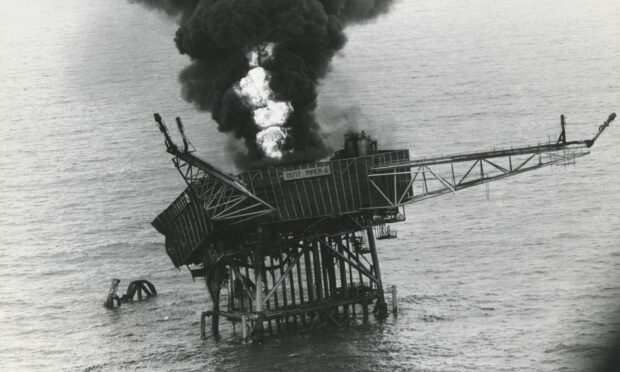
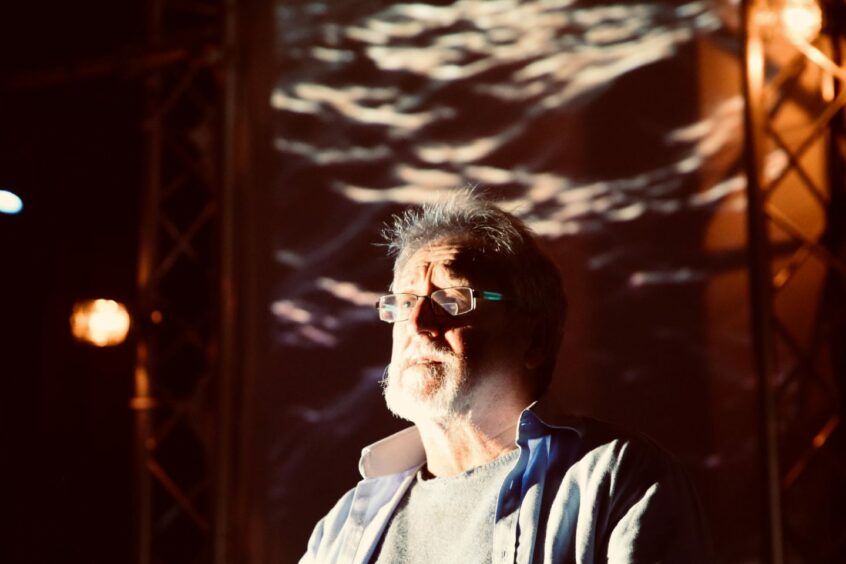

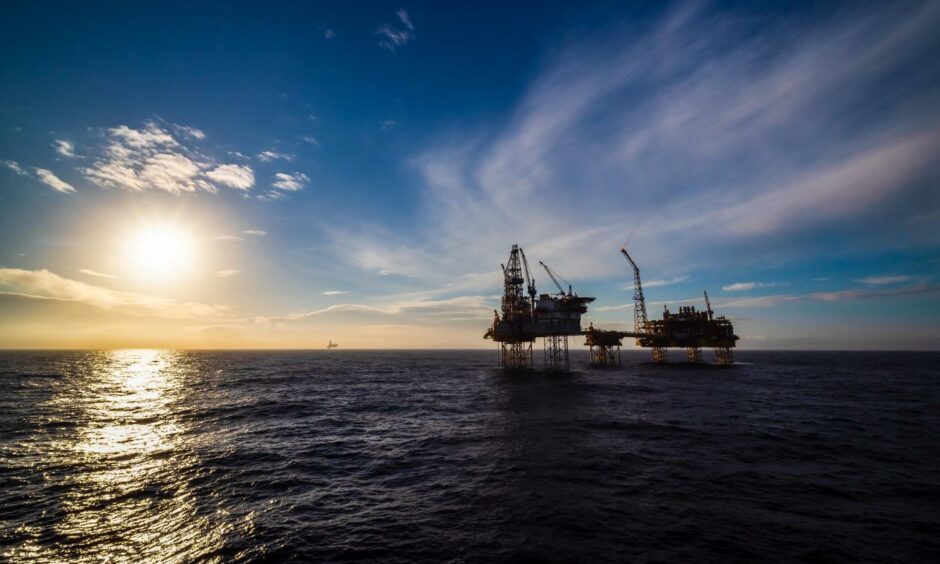

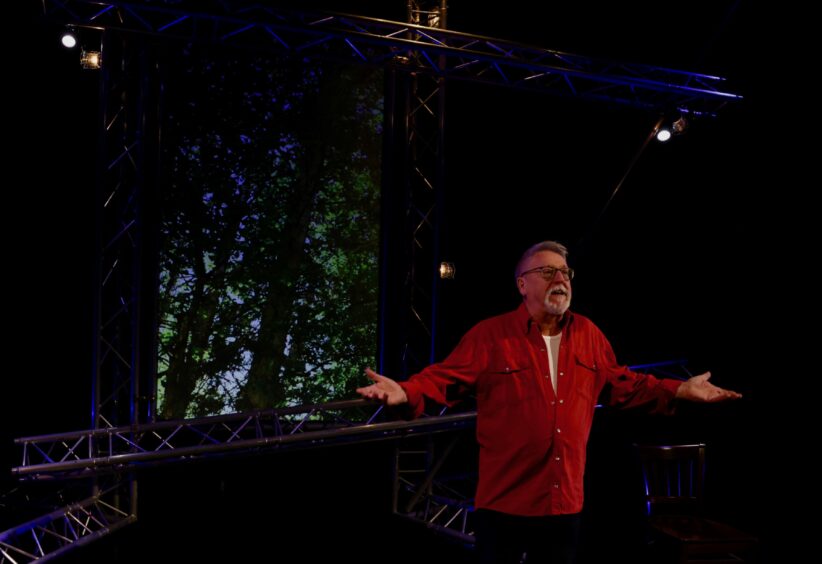
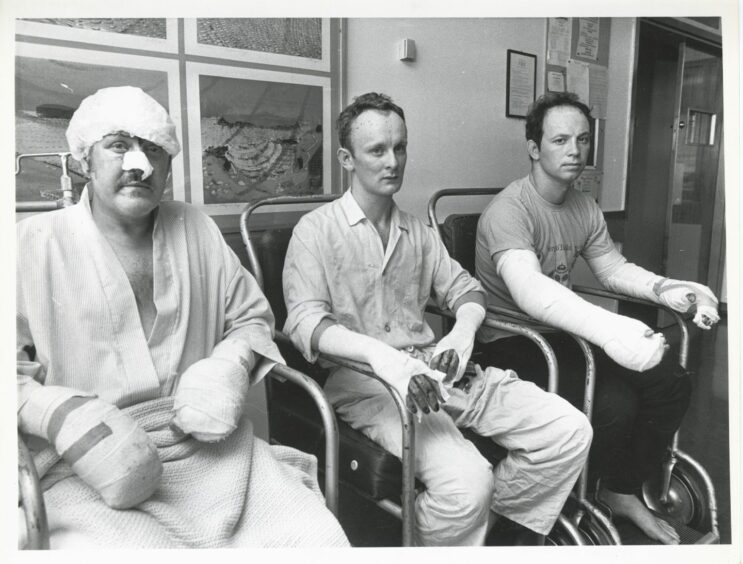

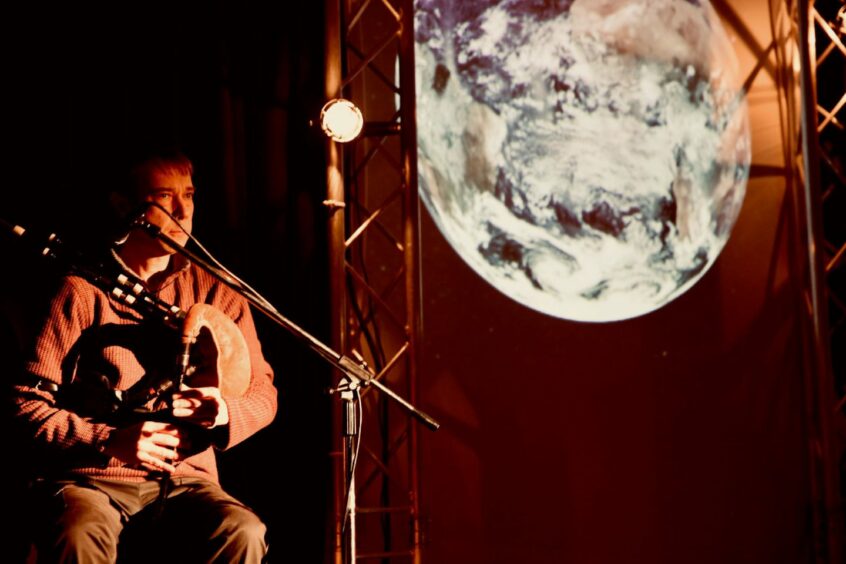
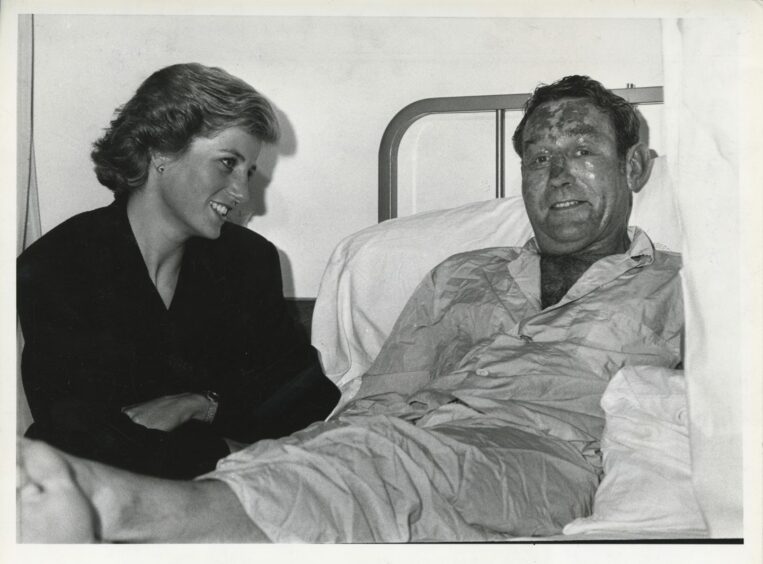
Conversation